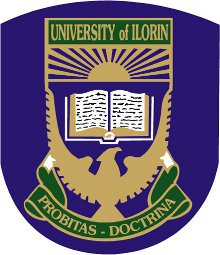How religion can aid development - Durham

The President of the International Consortium on Law and Religious Studies (ICLARS), Prof. Cole Durham, has described religion as an important factor that can aid development even though it has also impeded development in some parts of the world on certain occasions.
Prof. Durham made this observation last Wednesday, (June 22, 2016) while delivering his keynote address at the opening ceremony of a Conference on Law, Religion and Development in Africa, held at the University of Ilorin Auditorium.
In the keynote address, entitled "The Intersection of Law and Religion: Implications for Development", the Guest Speaker noted that various religious aid agencies make critical interventions during disasters around the world, adding, however, that certain religious rituals contributed to the spread of ebola disease in 2014.
The University of Utah scholar, who is also the founding Director of ICLARS, noted that between the 1960's and now, state sponsored development aid has been rolled back and non-governmental agencies and private donors have assumed more prominence.
Prof. Durham also submitted that to create a development enabling environment, freedom of religious belief and practice must be protected especially when the freedom does not harm others.
Earlier in his welcome address, entitled "Harmonious Co-Existence", the Vice-Chancellor of the University of Ilorin, Prof. AbdulGaniyu Ambali (OON), stressed the need to explore the nexus between law and religion in relation to development, saying this is crucial, in view of the unfolding events in the Nigerian nation.
According to the Vice-Chancellor, "...When the balance between law and religion is struck, there is development in both physical and spiritual realms. However, when there is no balance, there is lawlessness in religious practice and law itself becomes an instrument in the hands of the irreligious."
In his presentation, entitled "Law And Religion Studies In Nigeria: The Journey So Far", the National Coordinator of the Nigeria Inter-Religious Council (NIREC) and member of the African Consortium for Law and Religious Studies (ACLARS) Steering Committee, Prof. Is-haq Oloyede, traced the historical evolution of the International Centre for Law and Religion Studies (ICLARS) since it was established at the beginning of this century.
Prof. Oloyede, who was represented on the occasion by a former Dean of the Faculty of Law, University of Ilorin, Prof. Wahab Egbewole, highlighted the landmark achievements of the African Consortium for Law and Religious Studies in Nigeria and in the continent as a whole. He urged scholars and students in Nigeria and beyond to key into the intellectual movement of law and religion studies in order to be in a position to benefit from opportunities that are knocking in that emerging distinct field of scholarship.
In his own remarks, the Chief Judge of Kwara State, Justice Suleiman Kawu, who was represented by Justice Sikiru Yinka Oyinloye, noted that no country in Africa can attribute its development to religion because it is used as an instrument of oppression in Nigeria.
On his part, the Ag. Dean of the Faculty of Law, Dr. K.I. Adam, said that more than ten universities were to participate at the conference, which would foster inter-cultural and inter-religious dialogue.
While making his contribution at the event from the Islamic perspective, a former Grand Khadi of Kwara State, Justice Mutalib Ambali, noted that law became part of human society when the early man advanced from roaming and gathering into farming and laying claim to ownership of land and restriction was introduced to the human society.
In her own submission, Justice, M.A. Afolayan, who presented the opinion of Christianity, said that a good law would always find its roots in the law as she added that the commandment not to commit adultery given to Moses reflects in the criminal code which operates in northern Nigeria.
Cloud Tag: What's trending
Click on a word/phrase to read more about it.
Jawondo Illyasu Abdullahi Toun Okewale-Sonaiya GAMA Jeunkunu-Malete-Bani Face Masks Mahmud Durosinlohun Atiku Ridhwanullah Al-Ilory Gbugbu Femtech Jimoh Saadudeen Muhammed Odolaye Aremu Abdulquowiyu Olododo PAACO-PCL Consortium Bursary Sango-UITH Road Ejidongari Joana Nnazua Kolo Otunba Taiwo Joseph Bareke Olajumoke Monsura Gafar Suleiman Idris Olayinka Olaogun Tunde Oyawoye Bayo Ojo Societe Generale Bank Of Nigeria Kwara State Coalition Of Business And Professional Associations Kayode Issa Afeyin-Olukuta Saraki Kola Olota Mohammed Lawal Bagega Kwara State Pension Board Elerinjare-Ibobo Sulyman Tejidini Olokoba Sulyman Senior Special Assistant On Student Affairs Ahmed Shuaib Buranga Muhammed Akanbi Timothy Olatunde Fadipe Simeon Sule Ajibola Chemiroy Nigeria Limited TESCOM Tsaragi-Share V.O. Abioye Ahmed Logun Ajakaye Oko Malete Lawan Waheed Ibrahim Buari Edun Abiodun Abdulkareem IESA BIR Olabimpe Olani Yakubu Gobir Solomon Edoja Admiralty Villa Amusa Bello Oasis Muslim Care Foundation Special Agro-Industrial Hub JAAC Mohammed Ibrahim Olupako Of Share Umar Ayinla Saro Yekeen Alabi Oloye Okiki Bilikisu Gambari Afolabi-Oshatimehin Abdulraheem Olesin Ella Supreme Tissue Paper Kudirat Arinola Lawal Victor Gbenga Yusuf Abdulganiyu Salahudeen


